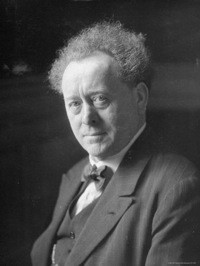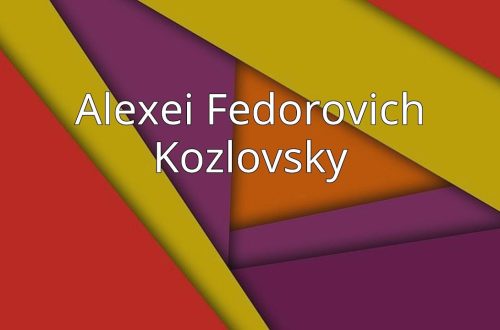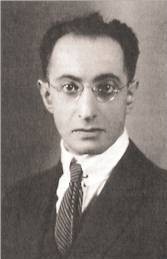
Asen Naydenov (Naydenov, Asen) |
Naydenov, Asen
When a few years ago the Bulgarian Radio and Television decided to hold a cycle of open concerts under the general name “Famous Artists”, the honorary right to perform in the first concert was awarded to the People’s Artist of the Republic Asen Naydenov. And this is natural, because Naidenov is rightly considered the “eldest” of the Bulgarian conducting school.
For a long time he has been the head of Naidenov’s Sofia People’s Opera. Many glorious pages in the history of this theater – the cradle of the national musical stage art – are inextricably linked with his name. Bulgarian music lovers owe him not only their acquaintance with dozens of works of classical and modern music, they are largely indebted to him for the education of a whole galaxy of talented artists who are now the pride of national art.
The talent and skill of the artist rest on a solid foundation of rich experience, wide erudition and deep knowledge of instrumental and vocal music making. Even in his youth, Naydenov, a native of Varna, studied playing the piano, violin, and viola; as a high school student, he already performed as a violinist and violist in the school, and then the city orchestras. In 1921-1923, Naydenov took a course in harmony and theory in Vienna and Leipzig, where his teachers were J. Marx, G. Adler, P. Trainer. Much was given to the musician by the atmosphere of the artistic life of these cities. Returning to his homeland, Naydenov became the conductor of the opera house.
In 1939, Naydenov became head of the musical part of the Sofia People’s Opera, and since 1945 he has officially held the title of chief conductor of the theatre. Since then, he has conducted hundreds of performances. Naydenov’s repertoire is truly limitless and covers works of several centuries – from the origins of opera to the works of our contemporaries. Under his leadership, the theater grew into one of the best opera companies in Europe and confirmed its reputation during numerous foreign tours. The conductor himself also repeatedly performed in different countries, including the USSR. He participated in the creation of the play “Don Carlos” at the Bolshoi Theater, conducted here “Aida”, “The Flying Dutchman”, “Boris Godunov”, “The Queen of Spades”; at the Leningrad Maly Opera Theater he directed the production of the operas Othello, Turandot, Romeo, Juliet and Darkness by Molchanov, in Riga under his direction there were Carmen, The Queen of Spades, Aida …
Soviet musicians and listeners highly appreciated the talent of A. Naydenov. After his tour in Moscow, the newspaper Sovetskaya Kultura wrote: “A. Naydenov’s conducting art is the art of wise simplicity, born from the deepest penetration into music, the idea of a work. Each time the conductor re-creates the performance in front of our eyes. Revealing the individuality of the artist, he unobtrusively but firmly unites all the participants in the performance into a genuine operatic ensemble. This is the highest kind of conductor’s skill – outwardly you do not see it, but in particular, and in general, you feel it every minute! Naidenov strikes with the naturalness, the rare persuasiveness of the pace he has taken. This is one of the most important qualities of his musical interpretation: even Wagner noted that “in the right tempo, the conductor’s knowledge of the correct interpretation already lies.” Under Naidenov’s hands, in the literal sense of the word “everything sings”, he strives for plasticity, the ultimate melodic completeness of the phrase. His gesture is concise, soft, but at the same time he is rhythmically impulsive, not the slightest hint of “drawing”, not a single gesture “to the public”.
Naidenov is first and foremost an opera conductor. But he also willingly performs in symphony concerts, mainly in the classical repertoire. Here, as in opera, he is best known for his excellent interpretation of Bulgarian music, as well as the works of Russian classics, especially Tchaikovsky. During the first years of his artistic career, Naydenov also performed with the best Bulgarian choirs.
L. Grigoriev, J. Platek, 1969





